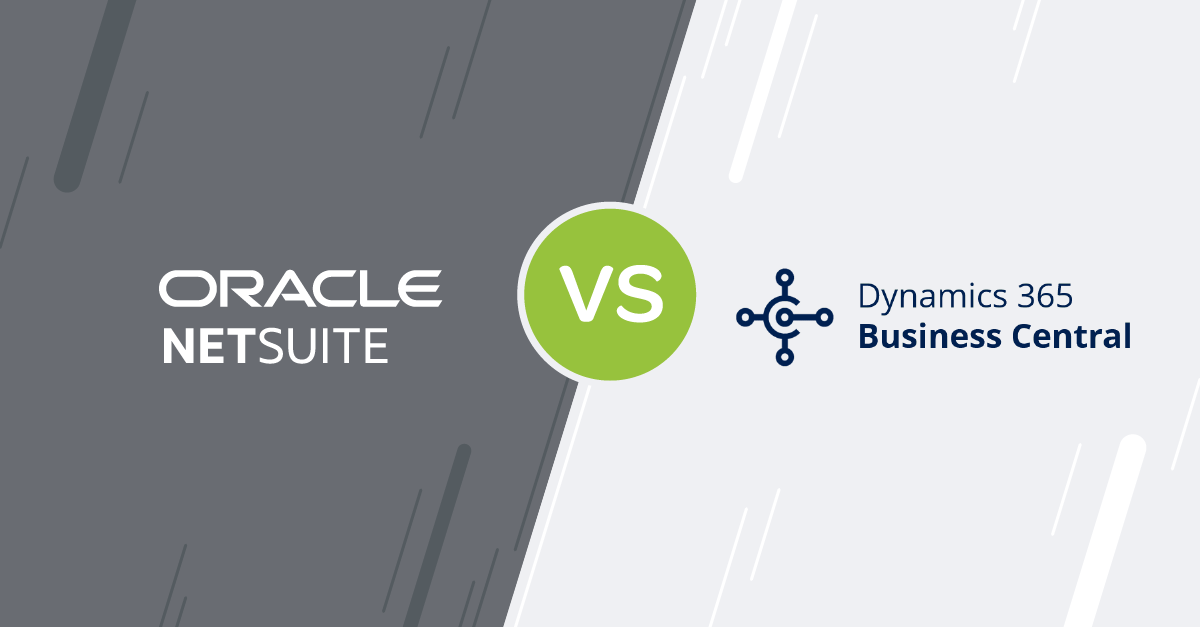Blog
Share this
The Vital Role of ERP for Manufacturing Companies [Up-to-date Guide]

by Jalene Ippolito on May 17, 2023
An ERP is a vital system for the success of your manufacturing business. Like the human nervous system, it receives data from all core operational processes and integrates information into a single database.
Once you connect the various departments and functions across your organization to this central system, your team members can use it as a trusted, single source of truth for any operational information.
With total visibility across all operational processes, they can manage the manufacturing process efficiently from start to finish, schedule production accurately, monitor inventory levels and control operational costs.
Moreover, an ERP delivers meaningful and consistent insights to optimize operations and helps stakeholders make better decisions.
In this article, we delve deeper into understanding how an ERP for manufacturing businesses can streamline inventory management and how ProjectLine helps manufacturing companies implement ERP systems for maximum benefit.
What is an ERP system in manufacturing?
An Enterprise Resource Planning (ERP) system is an integrated software solution that streamlines and automates various business processes and delivers many benefits to the manufacturing industry.
You can leverage various modules of an ERP for manufacturing to manage core functions such as Accounting & Finance, Procurement, Production Planning, Logistics, Sales, HR and more.
Implement the right ERP solution for your manufacturing business, and you'll unlock new efficiencies based on real-time data, streamlined workflows, better logistics management, supply chain visibility and inventory control.
Leverage ERP for manufacturing to:
- Create efficient production schedules, optimize resources with better planning and track production progress in real-time.
- Empower your production and logistics teams with real-time raw material tracking across different locations or warehouses.
- Track shop floor activities and monitor inventory of raw materials coming in and finished goods leaving the facility. Receive, scan in and store products in your warehouse with the ability to track down the location of every item within the warehouse.
At ProjectLine, we have expert consultants who can recommend and implement the right manufacturing ERP software system.
What's more, we ensure that there is minimal disruption to your daily operations and that the new processes align with your organization's work culture.
How does an ERP system streamline inventory management?
An ERP provides a centralized platform to manage inventory data accurately and in real-time.
You can use ERP data to maintain the delicate balance between stockouts and overstocks and streamline your inventory management processes in various ways.
Monitor stock
You can use ERP to monitor stock levels in different warehouses or distribution centers, reduce manual errors and minimize discrepancies in inventory data.
When you can accurately track inventory in real-time, your production teams can align their production schedules with stock levels and avoid excess or insufficient stock levels.
Automate cycle counting
You can integrate your ERP with barcoding systems or RFID technology for automated cycle counting and inventory tracking.
Predict demand
You can also use inventory data from the ERP system to predict future demand based on historical order data and past sales trends.
Automate procurement
An ERP can automatically generate purchase orders based on pre-configured reorder triggers, lead times and demand forecasts. Automating procurement processes helps you replenish your inventory levels in time and avoid stockouts.
Improve traceability
An ERP also provides traceability and visibility into goods movement, which is especially important for perishable goods as you can monitor expiration dates and maintain quality control.
Want to know more about inventory management? Read our guide on 5 Inventory Management Strategies to Improve Efficiency
Features and benefits of ERP for the manufacturing industry
ERP systems provide critical features that are essential for managing and optimizing the complex operations involved in manufacturing.
Here are the critical features of a manufacturing ERP system and their benefits:
1. Material Requirement Planning (MRP)
MRP is a critical feature in an ERP system for manufacturing. It helps you calculate the materials and components you need to manufacture a product using the bill of materials (BOM), inventory data and the master production schedule. First, it takes stock of what materials you have available. Next, you can identify which materials you need to order or procure. Finally, it enables you to schedule the production or purchase of the necessary components or materials.
Benefit: Produce finished goods on time, every time.
2. Production Planning & Scheduling
This feature lets you define production schedules, create BOMs, manage work orders and track production progress. It enables production teams to allocate resources efficiently, including labour, machines and time.
Benefit: Optimize the production process to improve manufacturing efficiency and reduce production costs.
3. Procurement & Supply Chain Management (SCM)
SCM is another critical feature for a manufacturing ERP. It helps you manage the entire supply chain, from procuring raw materials to delivering finished goods. It helps your procurement team manage supplier interactions, generate purchase orders, and track goods movement across the logistics and transportation stages.
Benefit: Reduce production lead times, improve supplier performance and enhance supply chain visibility.
4. Accounting & Financial Management;
This feature is vital for manufacturers as it tracks costs across the production process, including the cost of materials, labour and other overhead or operational costs. As a result, decision-makers can analyze performance by product line, project or cost center and reallocate costs to improve financial performance.
Benefit: Control production costs and maximize profitability.
5. Real-time Reporting & Analytics
Real-time dashboards and pre-built reports help you monitor and analyze performance metrics such as production output, inventory levels, order status and supplier performance. Real-time reports help you identify operational issues and address them promptly.
Benefit: Derive data-based insights to improve overall operational efficiency.
Consult our ERP experts at ProjectLine to identify a manufacturing ERP that ticks all the checkboxes to make your production process faster and more efficient.
ERP implementation for manufacturing companies
An ERP implementation is more complex than simply installing and configuring a new system.
It involves understanding your organization's needs, simplifying your operational processes and managing the transition to the new system with team training and support.
At ProjectLine, we work closely with you to understand your requirements and implement the modules or components that will yield the maximum benefit for your organization.
From meticulous configuration, systematic integration with your existing systems and a curated training program for your employees, we help you transition smoothly with a structured implementation plan.
And if our existing ERP solutions don't fit your specific requirements, we have the expertise to build a customized ERP solution.
Here are a couple of examples of how ProjectLine successfully implemented ERP for our customers.
Vandaele Seeds, a processor and exporter of the highest quality seeds and grains required a system to drive business growth and support future expansion.
One of their main challenges was a heavy reliance on Excel spreadsheets that was impacting productivity.
Our consultants recommended SAP Business One to support their operations and successfully delivered the following results:
- Increased efficiency throughout the business, allowing them to save time on routine tasks
- Achieved quality control and traceability for individual shipments or lot numbers
- Supported the stringent controls and traceability required in the industry.
Aircom Instrumentation specializes in temperature sensor manufacturing, specialty welding and instrumentation product distribution.
They had some unique system requirements to handle service, distribution and manufacturing and wanted to modify their accounting system to handle special manufacturing processes.
Using SAP Business One, ProjectLine achieved the following results for Aircom:
- Increased efficiency resulting from process automation
- Average time savings of one hour per day across 12 users
- Annual labour savings of $60K (reinvested into higher value tasks)
Is ERP the next step for your business?
Maintaining product quality and meeting regulatory standards is one of the biggest challenges manufacturers face.
ERP can help your business by defining quality standards, performing inspections, tracking defects, managing non-conformances and maintaining quality documentation—all in one connected system. But before investing in ERP, it’s important to understand whether your business truly needs it right now.
Frequently Asked Questions
What does ERP stand for in manufacturing?
ERP stands for Enterprise Resource Planning.
What are the typical manufacturing ERP modules?
A manufacturing ERP system typically consists of several modules designed to manage various manufacturing processes and operational functions. Some common modules include Material Resource Planning, Production Planning & Scheduling, Inventory Management, Project Management, Supply Chain Management, Quality Management, Analytics & Reporting.
What are the steps in a typical ERP manufacturing process flow?
A typical ERP manufacturing process flow involves the following steps:
Work Order Management > Material Requirement Planning (MRP) > Procurement > Production Scheduling & Planning > Shop Floor Execution > Quality Control > Inventory Management > Shipping and Logistics > Accounting & Financial Management > Reporting and Analytics.
What are the different types of ERP systems?
There are different types of ERP systems built to cater to the specific needs and requirements of various industries or purposes:
- General ERP
- Industry-specific ERP, including Manufacturing ERP, Financial ERP, Project Management ERP
- Small Business ERP
- Cloud-based ERP
- On-premise ERP
- Custom ERP
- Tiered ERP
Share this
Stay in the Know!
Join other SMEs who receive our monthly ERP insights, tips and best practices.
You may also like

ERP Funding for Canadian Businesses

Should You Work with a NetSuite Implementation Partner or Go Direct?



